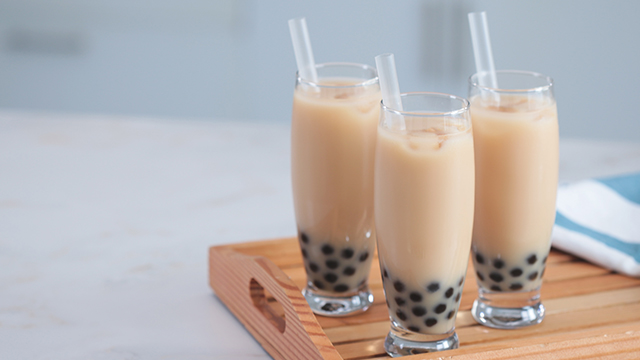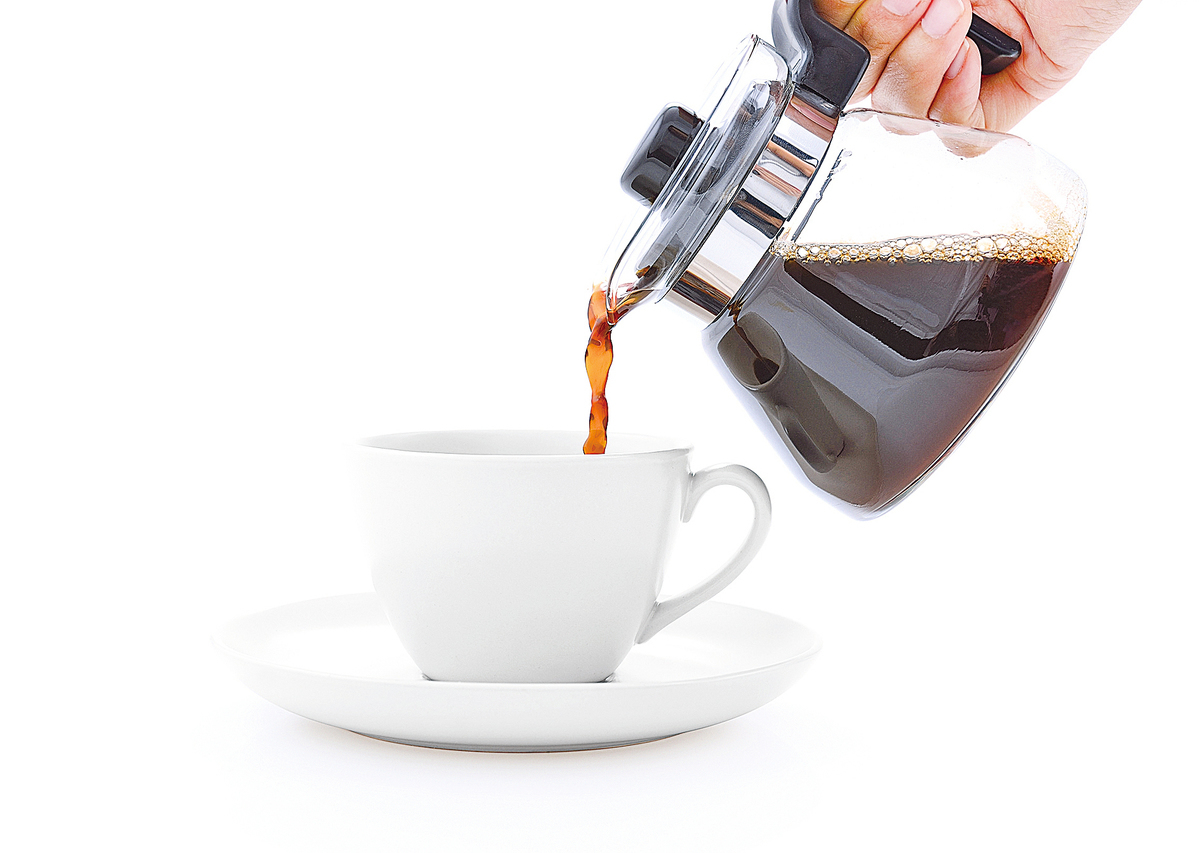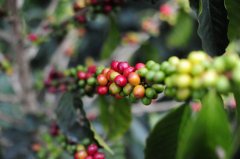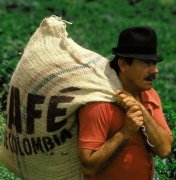Caffeine was detected in all 30 batches of milk tea in Suzhou. How can it be wrong that milk tea is so beautiful!
Professional coffee knowledge exchange more coffee bean information please follow the coffee workshop (Wechat official account cafe_style)
Staying up late every night and getting up early in the morning, modern people's sleep time can be said to be very precious. In this context, many people will stay away from coffee for fear of insomnia, and even dare not drink coffee during afternoon tea. You think only coffee contains caffeine? Order only other drinks every day, thinking that this will reduce your caffeine intake. But you may not have thought that when you are afraid of excessive caffeine intake and choose milk tea, it will also become a killer of sleep and even health.

Recently, Suzhou Zhangjiagang Market Supervision Bureau conducted spot checks on 30 batches of products from a little bit, CoCo Duke, Guiyuan Shop, Siyun Milk Gaigong Tea and 17 milk tea shops through the takeout platform. From the test results, some labeled less sugar, sugar-free milk tea, in fact, the total sugar content is not low. Among them, yoyaltea emperor tea (Meichen shop) a cup of sugar-free Acacia red bean milk tea, the total sugar content was 7.88g / 100g, equivalent to eating 8 pieces of sugar below. In addition, caffeine was detected in all 30 batches of milk tea, and one batch of medium-cup pearl milk tea from Siyun Milk Gaigong Tea (shopping park store) contained more than twice as much caffeine as a medium cup of American coffee, or equivalent to drinking 4.3 cans of Red Bull.
Although caffeine is named "coffee", it is only because it was first successfully extracted from coffee beans by German chemist H.U. Doerig Ferdinand Runge. Within a few years, the chemist also extracted caffeine from tea. The caffeine content in coffee beans is about 1% of its mass, while the caffeine content in tea is about 2% and 3% of its mass. As caffeine is widely used in processed foods, it may appear more frequently than you might think.

It is reported that a cup of American coffee (medium cup) contains 108 mg of caffeine and a can of Red Bull drink contains 50 mg of caffeine. The results of this sampling test found that all 30 batches of milk tea were occupied and caffeine was detected, with an average content of 239 mg / kg. A batch of medium cup pearl milk tea from Siyun Milk Gaigong Tea (Shopping Park Shop) has a caffeine content of 483 mg / kg. After conversion, the caffeine content of this medium cup of milk tea is more than twice that of a medium cup of American coffee, or equivalent to drinking 4.3 cans of Red Bull.
The World Health Organization's standard for caffeine intake is a single intake of less than 200 mg for healthy adults and less than 400 mg for the whole day. Take the milk tea with the highest caffeine content in this spot check as an example, if you drink 2 cups a day, it will exceed the standard.
1. Milk tea does contain caffeine.
In fact, it also depends on what kind of milk tea you ordered, and some milk tea highlights the milk part. Well, a little bit of tea will not have too much caffeine, but on the contrary, if it is the kind of milk tea with heavy tea flavor, especially the one with more black tea, there are more tea substances in milk tea, which will make your brain nerves in an active and excited state. Your insomnia is usually caused by the tea in black tea.
two。 There is coffee in milk tea
Now a lot of milk tea will pay attention to a variety of tastes, among them, many milk tea will put some coffee, which will make the taste of milk tea more rich, however, milk tea originally has some similar substances that make you insomnia, if you add coffee, then, generally, you drink this kind of milk tea in the evening, especially in the evening, the tea usually has caffeine in the coffee What's more, it will make your brain excited and awake, so you won't be able to get into the state all the time when you sleep.

Maximum caffeine intake
Everyone's reaction to caffeine is different. some people can't sleep at night after drinking only a small cup, while others still fall asleep at night even after a few drinks. The European Union recommends that adults consume less than 300 milligrams of caffeine a day, and excessive intake can lead to the risk of rapid heartbeat, high blood pressure and insomnia, which is harmful to health every minute.

Other drinks, such as energy drinks, cola, lemon tea, etc., contain caffeine, but for 250ml drinks, caffeine is generally less than 50 mg. However, drinking two or three cans of cola a day can also lead to excessive caffeine intake, in addition to problems such as insomnia or high blood pressure, and may even cause anxiety and increase the risk of osteoporosis. When choosing drinks, you should remember to pay more attention to their caffeine content so as to avoid excessive intake.
In addition, the way most people consume caffeine is not coffee, but milk tea or carbonated drinks, which add a lot of sugar to bring health risks such as obesity.

How can there be anything wrong with coffee being so good? There are six ways to reduce caffeine painlessly!
Coffee drinkers want to reduce their caffeine intake, what should they do? There is decaffeinated coffee on the market, but most of its manufacturing process is handled by pharmaceutical companies, which is not healthy and destroys the flavor of beans. Here are 6 ways to control your caffeine intake unwittingly and without health burden while tasting coffee.
1. Reduce the amount of coffee powder
The easiest way is to reduce the use of coffee powder when brewing. For example, the original use of two flat tablespoons of coffee powder can be reduced to one and a half tablespoons and the amount of water remains the same, which can also reduce caffeine intake.
two。 Use Arabica coffee beans
Almost all the coffee we drink are Arabica and Robusta, of which Arabica coffee beans account for 75% of the world's production. Growing up at high altitudes in the tropics, Arabica tastes softer, has a unique aroma and flavor, has a lower caffeine content, about half that of Robsta, and is more expensive because of its good quality. Growing at low altitudes, Robusta is often used in instant coffee bags to reduce cost and taste bitter. Therefore, when choosing coffee beans, you should choose 100% Arabica coffee to avoid consuming too much caffeine.
When buying coffee, pay special attention to the instructions on the coffee bag and the origin of the beans. If it is Colombia, Guatemala, El Salvador, Tanzania or Kenya, it represents Arabica coffee. Low price or European mixed beans, robusta coffee beans are often used, should be paid special attention.
3. Self-made Arabica mixed beans
Coffee beans produced in different countries have unique acidity and aroma. They can mix coffee beans according to their own preferences and mix coffee with new flavors. Coffee beans with high caffeine content can also be mixed with coffee beans with low caffeine content. While tasting coffee, it also reduces caffeine intake, such as Kenyan coffee beans with rich flavor and milder Colombian coffee beans. It's a good match.
4. Grinding roughness and cooking time of coffee beans
The fineness of coffee bean grinding will affect the brewing flavor. The finer the coffee bean is ground, the more caffeine is extracted, so the caffeine content of medium and coarse ground coffee powder is lower, and the bitterness is lighter, which can reduce caffeine intake.

In addition, the time of brewing coffee is also the key to the concentration of caffeine. the longer the coffee powder is soaked, the higher the caffeine content will be extracted. People often mistakenly think that Italian espresso has higher caffeine, because the taste is very strong, but in fact, the extraction time of espresso is very short, and the caffeine content is lower than that of hand brewing. As long as the coffee brewing time is shortened, the bitter taste and caffeine can be reduced.
5. Use deep-roasted coffee beans
The roasting degree of coffee beans is closely related to the caffeine content. According to the report of the World Coffee Science and Information Association (ASIC), according to the roasting degree, the caffeine ratio of an Arabica coffee bean is 1.37% for shallow roasted beans, 1.31% for medium baked beans and 1.31% for deep roasted beans. The longer the roasting time is, the caffeine decreases with the evaporation of water. As a result, deep-roasted coffee contains less caffeine than light-roasted coffee. In addition, the volume expansion of deep-baked beans is larger than that of shallow baked beans, so if you calculate it in terms of spoons, it will virtually consume less weight than usual and reduce caffeine intake.
6. Use instant coffee powder (Instant Coffee)
If you do not reject the taste of instant coffee, you can replace it with daily coffee. Instant coffee powder dries coffee beans at a low temperature to remove water, thus retaining the original aroma of beans, but also because of one more procedure. Its caffeine content is also low, 1.8 grams of instant coffee powder contains 57 milligrams of caffeine. It is worth noting, however, that instant coffee ground with 100% Arabica beans and no other additives is used for peace of mind.
The caffeine content in coffee is related to the variety of coffee beans, the thickness of the powder and the roasting degree of coffee beans. It does not mean that drinking coffee will necessarily lead to excessive caffeine intake, and it does not mean that everything will be fine without coffee. Drinking milk tea instead of coffee will still bring the problem of excessive intake of sugar and fat, which is obviously unreliable.
END
Important Notice :
前街咖啡 FrontStreet Coffee has moved to new addredd:
FrontStreet Coffee Address: 315,Donghua East Road,GuangZhou
Tel:020 38364473
- Prev

Vietnamese coffee accounts for 25% of Japan's imported coffee market, ranking second only to Brazil.
Professional coffee knowledge exchange more coffee bean information Please follow the coffee workshop (Wechat official account cafe_style) Vietnamese coffee gradually affirmed its position in the Japanese coffee market, now second only to Brazil, accounting for the second market share of Japanese coffee. In the first 11 months of 2018, Vietnamese coffee accounted for 25% of Japan's imported coffee market, while Brazilian coffee accounted for 27%, down 7% from the same period last year. More
- Next

The latest international coffee futures are quoted at US $98 per bag, and international coffee prices are expected to rise in 2020.
Professional coffee knowledge exchange more coffee bean information please follow the coffee workshop (Wechat official account cafe_style) Guatemala Agricultural Association (Camagro) pointed out that according to the international coffee price cycle, coffee prices will rise next year (2020). Nils Leporowski, president of Camagro, said that the latest international coffee futures quotation is US $98 per bag (100lb per bag), which is the same as in 1998.
Related
- Can lightly roasted coffee beans be used to extract espresso? How finely should you grind high-quality coffee beans to make Italian latte?
- What is the difference between the world's top rose summer coffee and Yejia Shefi? What are the flavor characteristics of Yega Shefi coffee and Panama rose summer?
- The ceremony is full! Starbucks starts to cut the ribbon at a complimentary coffee station?!
- A whole Michelin meal?! Lucky launches the new "Small Butter Apple Crispy Latte"
- Three tips for adjusting espresso on rainy days! Quickly find the right water temperature, powder, and grinding ratio for espresso!
- How much hot water does it take to brew hanging ear coffee? How does it taste best? Can hot water from the water dispenser be used to make ear drip coffee?
- What grade does Jamaica Blue Mountain No. 1 coffee belong to and how to drink it better? What is the highest grade of Blue Mountain coffee for coffee aristocrats?
- What are the flavor characteristics of the world-famous coffee Blue Mountain No. 1 Golden Mantelin? What are the characteristics of deep-roasted bitter coffee?
- Can I make coffee a second time in an Italian hand-brewed mocha pot? Why can't coffee be brewed several times like tea leaves?
- Hand-brewed coffee flows with a knife and a tornado. How to brew it? What is the proportion of grinding water and water temperature divided into?

